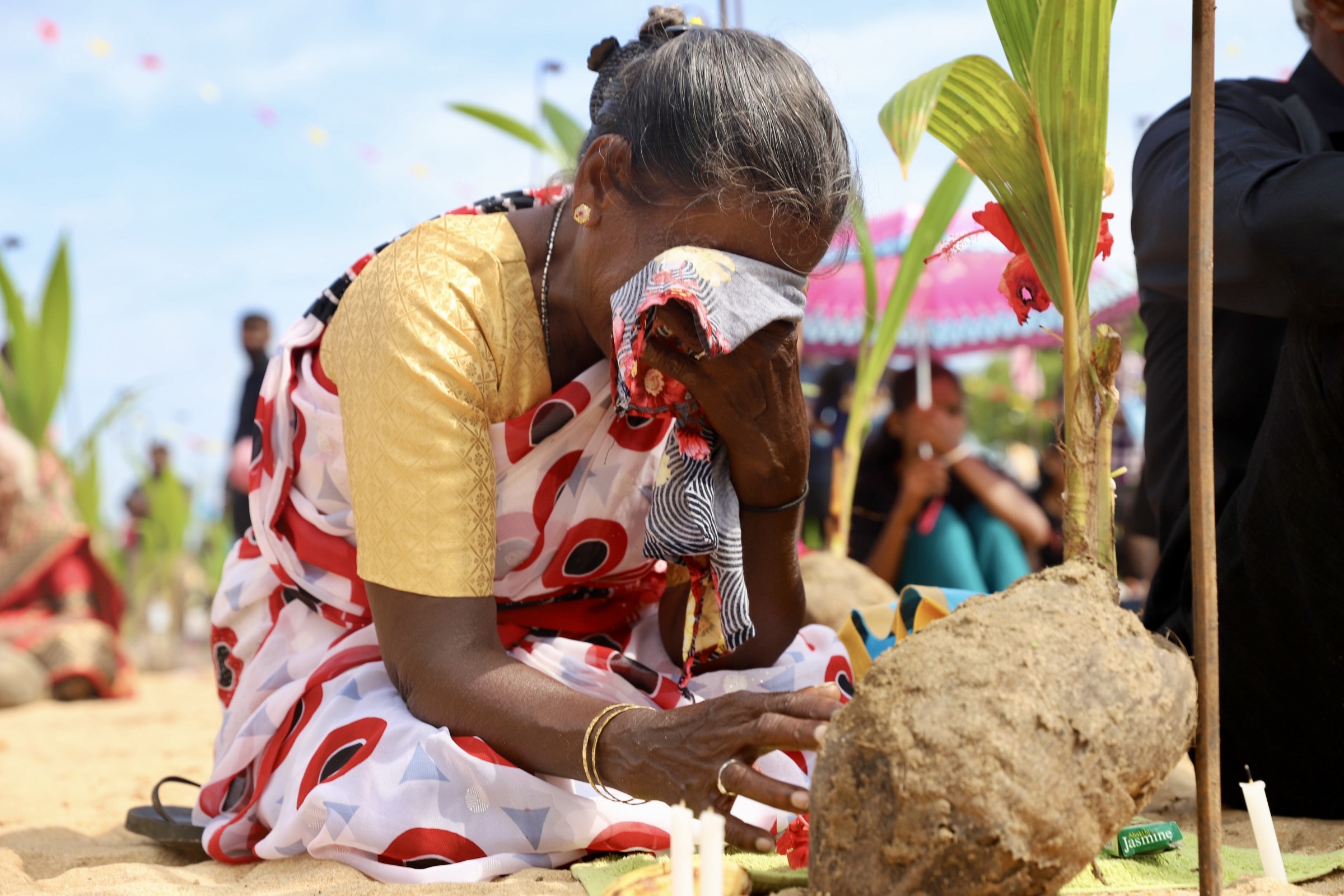
On the 16th anniversary of the Mullivaikkal genocide, senior officials from Human Rights Watch (HRW) have renewed calls for international justice, denouncing the Sri Lankan government’s continued refusal to address wartime atrocities and ongoing abuses faced by Tamil victims, particularly women.
In a piece published on 19 May, Meenakshi Ganguly, Deputy Asia Director of HRW, condemned the failure of successive Sri Lankan governments to deliver justice for the thousands of Tamils killed, disappeared, and subjected to torture during and after the armed conflict. She highlighted how Tamils across the island and diaspora continue to commemorate their dead each May, calling for accountability and justice that remains elusive 16 years on.
“Despite overwhelming evidence gathered by the United Nations and human rights groups of war crimes and human rights abuses by state security forces, successive governments have failed to launch any credible accountability process,” Ganguly wrote.
She pointed to the continued operation of the Prevention of Terrorism Act (PTA), which has long been used to target Tamils, despite repeated promises - including to the European Union under the GSP+ trade scheme - that it would be repealed.
Ganguly noted that while some Tamils had placed cautious hope in the presidency of Anura Kumara Dissanayake, that optimism has already faded. “They have been disappointed,” she said. Instead of pursuing new initiatives, Dissanayake has endorsed failed mechanisms such as the Office on Missing Persons, the Office for Reparations, and the Office for National Unity and Reconciliation, institutions that have been rejected by many victim families.
The government has also opposed the UN Human Rights Council’s Sri Lanka Accountability Project, a mechanism tasked with preserving evidence of international crimes for potential future prosecutions. Ganguly insisted that the project’s renewal in September was “vital” and urged the Dissanayake administration to demonstrate its commitment to justice by supporting the resolution.
“Instead of pretending that discredited domestic initiatives are working, the government should demonstrate its commitment to accountability by backing the resolution to renew the Accountability Project, and work towards delivering justice at last,” she concluded.
Sexual violence against Tamil women remains unaddressed
In another piece published on 16 May, Stacey-Leigh Manuel, Deputy Director of HRW’s Women’s Rights Division, focused on the deep and ongoing impacts of the conflict on Tamil women. While the war ended in 2009, she warned, the structural impunity that enabled wartime sexual violence remains unchanged.
“Among the victims were female LTTE fighters and other Tamil women captured by government soldiers before being stripped, sexually mutilated, and killed,” Manuel wrote. She noted that soldiers even filmed and photographed their crimes - images of Isaipriya, the Tamil media presenter who was raped and killed by the Sri Lankan military, remain some of the most harrowing examples.
Manuel stressed that this violence was not limited to the final stages of war. “Security forces sexually tortured numerous Tamil detainees, both men and women,” she said, pointing to widespread, documented patterns of abuse that continued long after 2009.
Even today, she added, militarisation in the North-East places Tamil women at risk, particularly former female LTTE cadres and the mothers and wives of the disappeared, many of whom have faced sexual harassment, threats, and extortion while campaigning for justice.
Like Ganguly, Manuel warned that domestic mechanisms have failed and that Tamil survivors “have lost faith” in the Sri Lankan justice system. She reaffirmed the importance of the Sri Lanka Accountability Project, calling for its renewal by the UN Human Rights Council.
“It is due for renewal by the UN Human Rights Council in September, which the Sri Lankan government should support,” said Manuel. “It’s continuation is vital to ensure justice for Sri Lanka’s Tamil victims, including women like Isaipriya and the suffering wives and mothers of the disappeared.”
